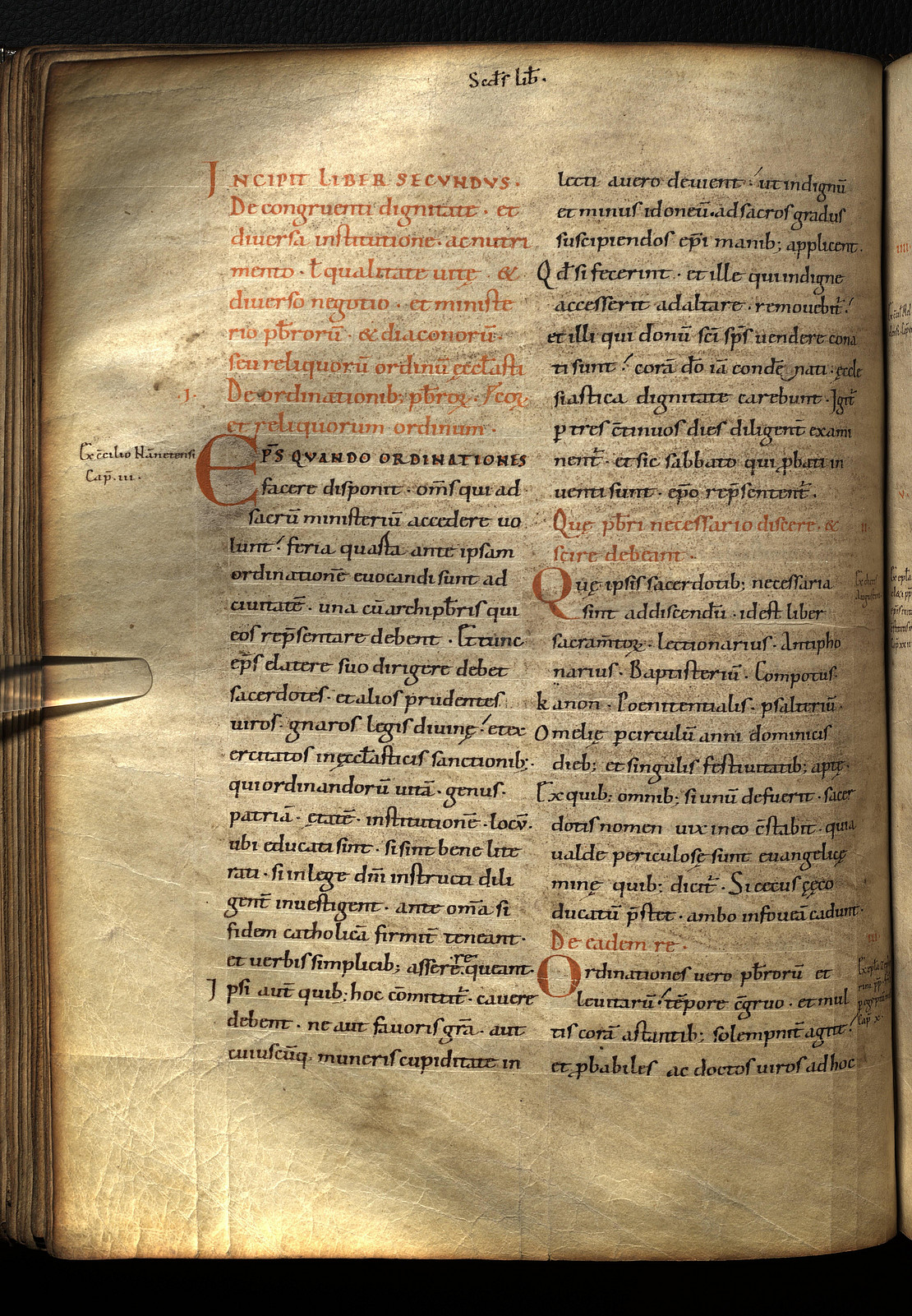This page contains automatically translated content.
Digital and printed edition of the legal texts of Burchard of Worms
 Image: Frankfurt University Library
Image: Frankfurt University LibraryWith its launch on May 18, the project was presented to the public. Speakers stressed the need for a new edition. One argument is that the most recent version was created almost 500 years ago. In addition, the goal of the research project is to produce a multi-perspective analysis of the tradition, reception, and legal and cultural historical significance of the collection of laws of Burchard of Worms and to establish an international platform for canon law.
The project focuses on the "Decretum Burchardi" written by Bishop Burchard of Worms, which was one of the foundations of ecclesiastical law books in the 11th and 12th centuries. Later legal scholars also referred to this legal text for a long time.
At the launch, among other things, the three project phases, each of which is scheduled to run for six years, were discussed in greater detail. The work of Hartmut Hoffmann and Rudolf Pokorny from 1991 on the manuscript tradition provides suggestions for phase one. Selected manuscripts are the basis for a first critical printed publication as well as for the later online publication. In the second phase, additional manuscripts will be incorporated into the digital edition. In the third phase, the history of the reception of Burchard's texts will be examined in greater depth.
The research team deliberately decided on a printed and a digital version. The online version is intended to present the complex and multi-layered history of transmission. Among other things, numerous versions and originals could be taken into account. Links to manuscript digitizations and related literature would also be possible. The printed version, on the other hand, would offer a faster overview, reduce complexity, and be more durable.
A challenge was the selection of a basic copy of Burchard's legal codification for the edition. More than 80 manuscripts survive, including six that were produced directly under Burchard's supervision in the Worms scriptorium. Here, the team chose the Frankfurt manuscript because it is the most widely used. Technical hurdles were also clarified, including the question of which program is best suited for transcribing the texts.
The research project 'Burchard's Decree Digital', led by Prof. Dr. Ingrid Baumgärtner (University of Kassel), Prof. Dr. Klaus Herbers (Friedrich Alexander University Erlangen-Nuremberg) and Prof. Dr. Ludger Körntgen (Johannes Gutenberg University Mainz), is part of the Academies' Program, with which the Union of German Academies supports long-term research projects such as central editions, dictionaries and text corpora as repositories of knowledge. The project, under the umbrella of the Academy of Sciences and Literature in Mainz, is scheduled for a funding period of 18 years (2020-2037).
Contact:
Prof. Dr. Ingrid Baumgärtner
University of Kassel
Department 05 - Social Sciences
Chair of Medieval History
Tel. +49 561 804-3104
E-mail: ibaum[at]uni-kassel[dot]de
Sebastian Mense
University of Kassel
Press and Public Relations
Phone: +49 561 804 -1961
E-mail: presse[at]uni-kassel[dot]de